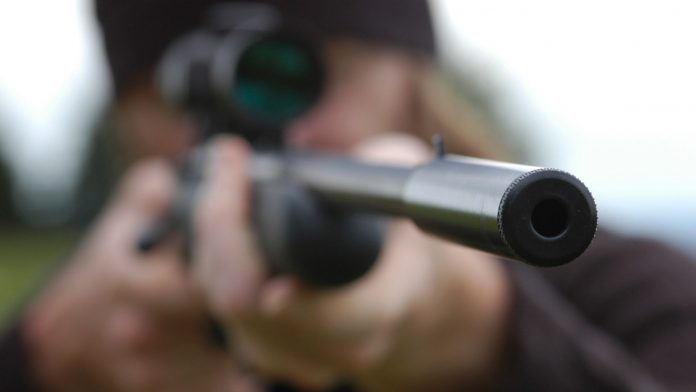Full story
As the clock ticks down for Congress to meet President Donald Trump’s July 4 deadline to pass his “big, beautiful bill,” some changes have been made to the massive tax and spending cuts package. Among them are changes that would loosen regulations established in certain gun laws.
What are the proposed changes?
A provision added to the package by the Republican-led House of Representatives would remove suppressors – also called silencers – from the National Firearms Act, a 1930s law regulating firearms that are considered the most dangerous. This would eliminate a $200 tax and remove a layer of background checks.
Unbiased. Straight Facts.TM
May 2025 marked the 70th month in a row in which more than 1 million guns were legally sold in the United States.

Currently, the NFA requires a $200 payment to the U.S. Bureau of Alcohol, Tobacco, Firearms and Explosives and additional background checks beyond what’s required by state and local law enforcement before someone can purchase an item that’s applicable to the act. Wait times for government processing of the application can take anywhere from a month to nearly a year, depending on how many applications are pending.
Short-barreled rifles, classified as any rifle with a barrel shorter than 16 inches, and shotguns with barrels shorter than 18 inches are items that fall under the NFA.
It was originally added to the bill at the behest of Rep. Andrew Clyde, R-Ga., who was against the tax package, initially. Clyde also owns two gun stores in his home state.
When the bill made its way to the Senate – also led by Republicans – they kept that provision and expanded it to add short-barreled rifles and shotguns.
Supporters of the proposed changes, including the National Rifle Association, say the tax infringes on Second Amendment rights. They argue suppressors are mostly used by hunters and target shooters to protect their hearing.
Contrary to popular belief, suppressors don’t make firearms as silent as they appear in movies. A well-designed suppressor is capable of reducing the sound of a firearm firing by 20-35 decibels, according to the Congressional Sportmen’s Foundation.
What are critics saying?
Democrats are fighting to stop the provision, which was unveiled just days after two Minnesota state legislators were shot in their homes, resulting in multiple deaths.
They argue loosening regulations on suppressors could make it easier for criminals and active shooters to conceal their locations when firing their weapons.
The group Giffords, which is named after former Democratic Congresswoman Gabby Giffords and works to reduce gun violence, has also spoken out against the proposal, saying it would impair the ability of law enforcement to respond to active shooters. Giffords was shot in the head by a gunman who killed six people and injured 12 others at an event for constituents in Tucson, Arizona in 2011.
What happens if it passes?
The gun provision is just one of hundreds of policy and spending items included in the “big, beautiful bill” meant to sway more members of Congress in favor of voting for it.
If the bill is passed with the gun provisions still in place, suppressors and the short-barrel rifles and shotguns would lose an extra layer of regulation they’re currently subject to under the longstanding National Firearms Act. The NFA was passed in 1934 in response to concerns about mafia violence. However, they would still be subject to the same regulations that apply to most other guns, including age restrictions and background checks.

